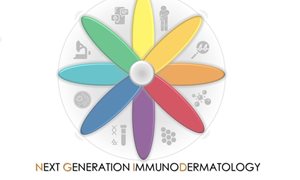 In a publication in Scientific Reports, researchers from the Experimental Dermatology Laboratory, themes Inflammatory diseases and Infectious diseases and global health, and the department of Human Genetics, have shown the great potential of two immortalized human keratinocyte cell lines (N/TERT1 and N/TERT2G) for studies on epidermal biology, inflammatory skin disease pathogenesis and therapeutics.
In a publication in Scientific Reports, researchers from the Experimental Dermatology Laboratory, themes Inflammatory diseases and Infectious diseases and global health, and the department of Human Genetics, have shown the great potential of two immortalized human keratinocyte cell lines (N/TERT1 and N/TERT2G) for studies on epidermal biology, inflammatory skin disease pathogenesis and therapeutics.
Publication in Scientific Reports.
Related news items

Large NWA ORC grant awarded for national skin research: Next Generation ImmunoDermatology
23 March 2022Research for better treatment methods for chronic skin diseases.
go to page
RIMLS awards call for nominations
19 October 2021 RIMLS awards several prizes to stimulate and honor our (young) researchers. Upcoming awards are Supervisor of the Year, Best Master Thesis, Best Publication, Best Image and more. Send your nominations now before 24 November 2021. go to page
Best publication award of 2019 in dermatology awarded to Jos Smits and Tom Ederveen
30 September 2020The Dutch Society for Experimental Dermatology (NVED) awarded the publication in Journal of Investigative Dermatology of Jos Smits and Tom Ederveen.
go to page
LEO Foundation grant for Ellen van den Bogaard and Patrick Zeeuwen
17 January 2019 LEO Foundation ‘Open competition grants’ are given to support the best dermatology research projects worldwide that improve the understanding of the underlying medicinal, biological, chemical, or pharmacological mechanisms of dermatological diseases and their symptoms. go to page

